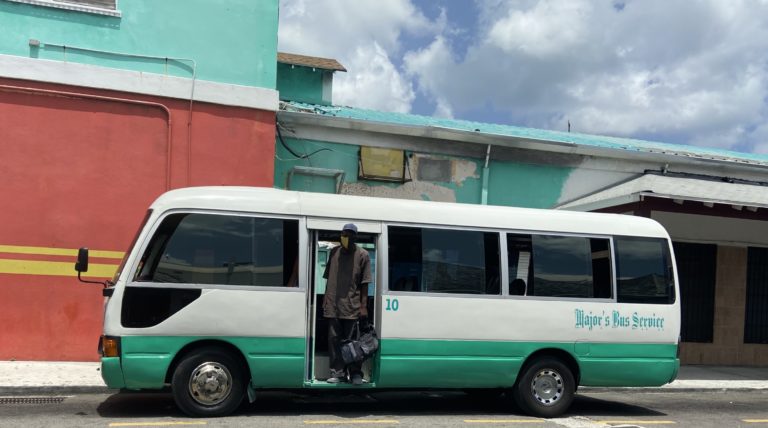Fare increase very crucial for survival
NASSAU, BAHAMAS – While the cost of bus fare has yet to increase to two dollars, United Public Transportation Company’s President Harrison Moxey said yesterday that drivers are now operating at 20 percent as a result of the pandemic fallout.
The country officially reopened its borders to international travel on Wednesday, also ushering the resumption of public transportation.
Buses and taxis have been shuttered since mid-March, when the government decided to take drastic measures to mitigate against the local spread of COVID-19.
In recent weeks, bus operators have called on the government to increase the current $1.25 bus fare to $2.00, in order to help offset the reduction in passenger capacity and increased costs.
“The cost has not been increased as yet and right now on the roads the public awareness of those things ain’t up right now, so the buses really operating 20 – 30 percent right now,” Moxey told Eyewitness News.
“Most people aren’t moving and the hotels aren’t opened as yet, particularly for those in the west. So it’s really a hard move right now.”
He indicated that while they will wait and see how the industry rebounds post-COVID-19 closures, “It’s not a pretty picture at all. The increase for us right now is very very crucial”.
Moxey advised that his organization and independent bus drivers are agitating for the increase, noting that he has reached out to officials but has yet to receive a response.
“By now and Friday we are going to be aggressively seeking an answer to it,” he added.
 Bus operators have implemented several safety protocols mandated by officials, including cutting down their number of passengers by 50 percent to obey physical distance protocols, adding hand sanitizer dispensers, enforcing the use of masks at all times, and disinfecting the vehicles regularly.
Bus operators have implemented several safety protocols mandated by officials, including cutting down their number of passengers by 50 percent to obey physical distance protocols, adding hand sanitizer dispensers, enforcing the use of masks at all times, and disinfecting the vehicles regularly.
Moxey noted that as of 4 pm yesterday, the majority of drivers had barely made between $20 – $30 in fares for the day. He said they are burning more costs in fuel than the fare collected.
 “This compounds the expense, the operational expense,” he continued.
“This compounds the expense, the operational expense,” he continued.
“There is decrease in your income, so you’re obviously running a deficit.”
“…We need help, we need all the help we can get. If the public can be sensitized as to what’s happening and know that the buses are up and operating”.
Moxey added that with hotel closures and low unemployment, bus operators are getting hit from every angle.
“I don’t think there’s been enough political will,” he said.
“We need our minister to speak out because it’s very very vital.”


